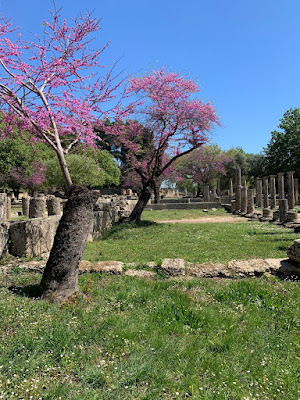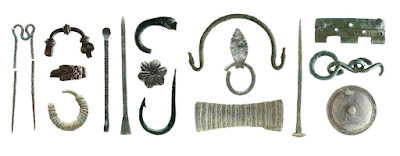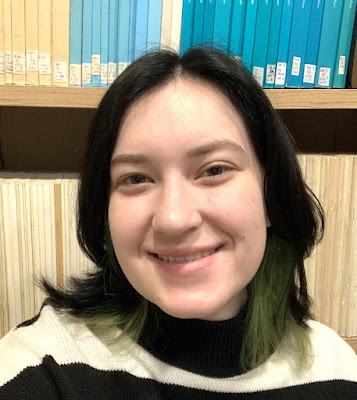When I first arrived in Athens, I was overwhelmed with many emotions: this was something I had been working toward for a couple of years, and it was all worth it for the reward.
I had known about the CIG internship for a few years before I was able to apply, and getting the opportunity to experience both the work and Greece are unforgettable. Aside from weekly management of the social media, I did most of my work in the library cataloging, organizing, and digitizing books, reshelving them and doing a brief inventory of the collection. While I thoroughly enjoyed my time in the library (much like Belle from Beauty and the Beast), exploring Greece was half of what made this opportunity so exciting. In my first couple of months in Athens, I went on a variety of solo expeditions from museums as close as the Museum of Cycladic Art, to a bus trip to Cape Sounio. These two trips were particularly moving for me. The magic at Sounio was something I couldn’t even imagine replicating (it helps that the weather was great), and I would recommend it immensely to anyone who could go. The Museum of Cycladic Art was one of the first museums I went to and has stood as my favourite one, especially the temporary exhibit on the Battle of Chaeronea they had on while I was in Athens.
Even though I took many solo trips that I highly enjoyed, my experiences with the friends I made were distinctly memorable. Two of my favourite memories with friends were going to Mycenae with Esmée, a masters student at the Groningen Osteoarchaeology Lab; and walking around Kifisia with Emily, a professor and CIG board member, and Janne, an intern at the Finnish Institute at Athens. While I would have enjoyed these trips alone, having the opportunity to explore them with friends made them even more important to me, memories I will hold for a long while.
As an undergrad student, it can be difficult to fully know where you want to go in the future. Despite having my ideas about my options, areas of interest, and where I think I want to go, being able to experience the very places I study in school and meeting people with similar interests of study have helped me to better get a grasp on where I can go moving forward.
While this chapter of my life comes to a close, I know I won’t forget any it (and hopefully not my relatively-well-pronounced coffee order for next time I return), and I am eternally grateful for being able to have this opportunity to work with the CIG and immerse myself in Greek culture while doing so.
Ευχαριστώ πολύ!!
Emma van Weesenbeek
University of Waterloo intern, Winter 2024



















